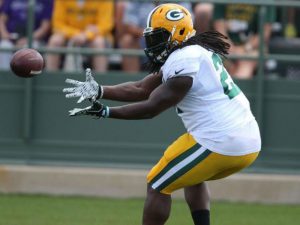(ThyBlackMan.com) “Fat-shaming” is “unkind and usually public criticism of someone for being overweight”. There is no exact date when fat-shaming started but there is a chance that the practice of fat-shaming is as old as humankind itself because of the human tendency to compare. The explosion of social media platforms like Facebook and Twitter means that we as a society are more aware of people criticizing the bodies of other people. In professional sports, athletes make money based on the abilities of their bodies, not necessarily how those bodies look, yet professional athletes can be fat-shamed from fans, media, or even their own coaches.
Women are unfortunately subject to fat-shaming moreso than men. Because American society places a high premium on how a woman looks, the weight of a woman is constantly under attack by  unrealistic beauty standards that are presented in the media. Few athletes have faced as much body-shaming than the Williams sisters, Venus and Serena.
unrealistic beauty standards that are presented in the media. Few athletes have faced as much body-shaming than the Williams sisters, Venus and Serena.
The Williams sisters looked differently than their white peers in women’s tennis beyond their skin color and hair textures as their bodies were under criticism throughout their careers. Longtime friend of Serena Williams, fellow tennis player Caroline Wozniacki, padded her skirt and shirt to impersonate Williams during an exhibition match in Brazil years ago and received criticism for doing so. There were questions about whether Wozniacki’s act was racist but it is hard to argue that it wasn’t body-shaming even if it was intended as a joke.
Another all-time great athlete, Kobe Bryant, was the unexpected target of fat-shaming earlier this year. In his athletic prime, Bryant was an athlete capable of winning an NBA Slam Dunk Contest
or making some of the most difficult shots anyone has seen. He has been retired for well over a year now and last summer he was photographed by TMZ shirtless while in Portofino, Italy on vacation with his family, which prompted him to post, then delete, an Instagram photo of a picture acknowledging he is not in NBA shape anymore. Social media responses to his picture of his body led Bryant to deleted the paparazzi photo, Bryant replaced it with a black image captioned “Mamba mode #blackout.”
Unfortunately, fat-shaming can also take a very serious tone as well. Seattle Seahawks Eddie Lacy has always been a large running back while at Alabama and in the NFL but he revealed in an ESPN interview about how the constant attention towards his weight, and being fat-shamed on Twitter bothers him. After an extremely productive start to his NFL career, Lacy has battled injury and weight issues the last couple of years that has left his long-term NFL future uncertain. Like Lacy, millions of people in America face ridicule and criticism for their weight and fat-shaming is a significant problem in society as even doctors can be guilty of “fat-shaming” which can do harm to their patients. The stress of life doesn’t need body-shaming or fat-shaming as a “motivational tool” to get the best out of people.
Staff Writer; Mark Hines




















Leave a Reply